Securing the Set: Why Professional Security Is Critical to Safe and Successful Film Production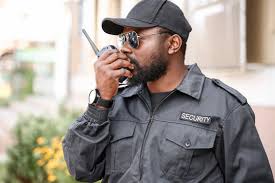
In the fast-paced world of film and television, a single disruption can bring production to a halt. From high-value equipment to high-profile talent, every aspect of a movie set needs protection. Whether it’s a blockbuster film or a modest independent project, professional security services are essential to maintaining order, ensuring safety, and protecting assets throughout the filming process.
This article explores why dedicated movie set security is a necessary investment—not only for safety and risk management but also for the overall efficiency and success of any production.
1. Safeguarding Cast and Crew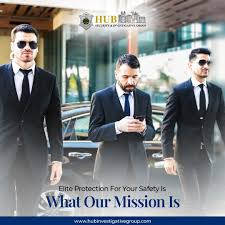
Talent is one of the most valuable resources on any production set. Actors, directors, and crew members need to work in an environment where they feel safe and protected. For high-profile cast members, public attention often brings added risks including unwanted crowds, paparazzi, or potential threats.
Professional security ensures:
-
Controlled access to trailers and personal spaces
-
Safe transport of talent to and from the set
-
Monitoring for suspicious behavior or harassment
-
Rapid response in case of emergencies
In addition to celebrity protection, security also fosters a general sense of safety for all personnel, allowing them to focus entirely on their work.
2. Preventing Equipment Theft and Damage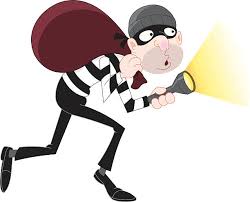
Film sets involve expensive gear—cameras, lighting, sound systems, props, computers, and vehicles. These assets are often left overnight or staged outdoors, making them vulnerable to theft or vandalism.
On-set security plays a crucial role in:
-
Patrolling storage areas
-
Monitoring equipment trucks and trailers
-
Guarding staging areas after hours
-
Verifying equipment movement and delivery
Even a single incident of stolen or damaged equipment can lead to massive delays and increased insurance costs. A visible and active security presence serves as a powerful deterrent.
3. Controlling Access and Preventing Intrusions
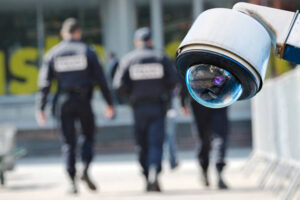
Unauthorized visitors, trespassers, and even overly enthusiastic fans can pose risks to set security. Whether they’re seeking autographs, photos, or viral content, their presence can lead to distractions, production delays, and potential liability issues.
Security guards provide:
-
Credential checks and ID badge verification
-
Enforcement of access restrictions
-
Perimeter patrols
-
Immediate intervention when intrusions occur
By maintaining strict access control, security ensures that only authorized personnel are on-site—protecting both the people and the integrity of the project.
4. Protecting Confidential Content and Intellectual Property
In an era dominated by social media and viral leaks, keeping plotlines, scenes, and visuals confidential is vital. Unauthorized photos or footage from a set can cause irreversible damage to a production’s marketing strategy or release plans.
Security can assist with:
-
Enforcing no-photo and no-recording policies
-
Monitoring devices entering secure areas
-
Preventing footage leaks or digital theft
-
Assisting with NDA enforcement
Confidentiality is a serious matter in the film industry. Security ensures that intellectual property remains protected from leaks or sabotage.
5. Managing Emergency Situations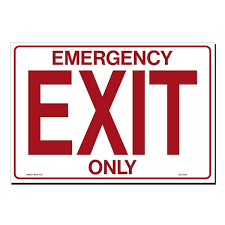
From medical incidents to fire hazards, emergencies can occur without warning on any movie set. Security guards are trained to be first responders in critical situations and serve as the front line of protection until emergency services arrive.
Responsibilities include:
-
Providing first aid and CPR when needed
-
Coordinating evacuations
-
Managing crowd control during emergencies
-
Documenting incidents for legal or insurance use
Their readiness and training help prevent small issues from escalating into major crises.
6. Supporting High-Risk Scenes and Special Effects
Action scenes, pyrotechnics, stunts, and simulated violence create an elevated risk environment. These scenes require absolute precision and careful control of the filming area.
Security professionals ensure:
-
Set lockdown during high-risk sequences
-
Safe distancing between the set and bystanders
-
Coordination with fire marshals and medics
-
Enforcement of safety regulations and union protocols
They work in tandem with production managers to create a safe space that allows creative risks without compromising real-world safety.
7. Coordinating with Permitting and City Regulations
Many municipalities require permits for filming, especially if production impacts public streets, traffic, or neighborhoods. These permits often come with legal obligations for traffic control and public safety—tasks ideally suited to professional security firms.
A skilled security team helps with:
-
Fulfilling permit-related security requirements
-
Managing sidewalk or street closures
-
Liaising with local authorities
-
Ensuring compliance with insurance and legal terms
Their knowledge of local ordinances and procedures helps avoid regulatory violations that could delay or shut down production.
8. Providing Crowd Control and Public Relations
Filming in public areas naturally attracts attention. Onlookers can interfere with shots, disrupt scenes, or create hazardous situations if not properly managed. Security personnel trained in crowd control and public engagement provide both protection and professionalism.
Services include:
-
Setting up barricades or temporary fencing
-
Directing foot and vehicle traffic
-
Managing background actors and extras
-
Offering polite but firm guidance to bystanders
A skilled security team also helps preserve the production’s reputation by engaging with the public in a respectful, informed manner.
9. Enhancing Operational Efficiency
Beyond safety, security teams contribute to the overall efficiency of the production. By handling logistics like access management, crew verification, and traffic coordination, they free up the production team to focus on the creative process.
Operational benefits of on-set security include:
-
Faster start times and controlled wrap-ups
-
Fewer interruptions or shutdowns
-
Smoother deliveries and load-ins
-
Reliable reporting and communication systems
Security becomes a logistical asset that helps reduce downtime, confusion, and miscommunication.
10. Reducing Liability and Insurance Risk
Production insurance policies often require risk mitigation strategies, and hiring professional security can significantly reduce exposure to liability. Documented security plans, incident reports, and emergency readiness all contribute to safer filming environments.
Security services also:
-
Protect against personal injury claims
-
Deter property damage or theft
-
Offer documentation that aids legal defense
-
Support compliance with industry safety standards
By reducing risk, security helps keep insurance premiums manageable and protects the production’s financial bottom line.
Final Thoughts: Safety, Control, and Peace of Mind
Movie sets are complex environments that combine creativity, logistics, people, and equipment—often under tight schedules and high pressure. With so many moving parts, the risk of disruption, injury, or theft is real.
Professional security isn’t just about protection—it’s about enabling creativity to thrive in a secure, controlled, and efficient space. Whether you’re producing a short film or a multi-million-dollar feature, the presence of trained, licensed, and experienced security professionals ensures that your set runs safely, smoothly, and without interruption.
Trust Hub Security and Investigative Group With Your Next Production

At Hub Security and Investigative Group, we specialize in providing customized movie set security solutions tailored to the unique needs of film and television productions. Our licensed professionals are trained in crowd control, asset protection, access management, and emergency response.
LINKS:
https://www.yelp.com/biz/hub-security-and-investigative-group-boston

